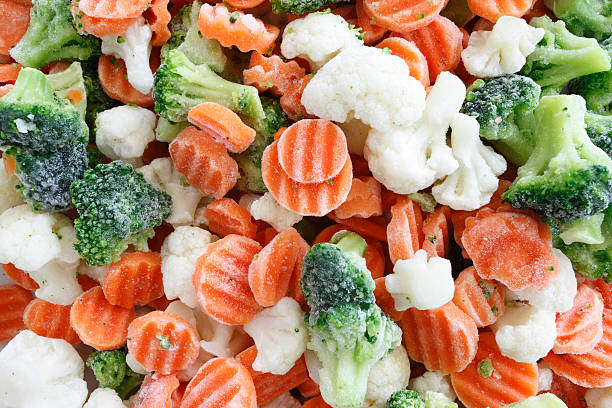As parents, we strive to provide our children with the best nutrition possible. Vegetables play a crucial role in a balanced diet, offering essential vitamins, minerals, and fiber necessary for growth and development. While fresh vegetables are often perceived as the gold standard, frozen vegetables are an excellent alternative that can be just as nutritious, if not more so. Here are the benefits of using frozen vegetables and why they can be a fantastic choice for your children’s diet.
1. Nutrient Retention
One of the most significant advantages of frozen vegetables is their nutrient retention. Frozen vegetables are typically harvested at their peak ripeness, when they are most nutritious. They are then quickly blanched and flash-frozen, a process that locks in their vitamins and minerals. In contrast, fresh vegetables often lose some of their nutrient content during transportation, storage, and time spent in grocery store displays.
- Vitamins and Minerals: Studies have shown that frozen vegetables can retain their nutrient levels, including vitamins A, C, and E, better than fresh vegetables stored for several days.
- Fiber: The fiber content in vegetables remains largely unaffected by freezing, ensuring that your child gets the necessary dietary fiber for healthy digestion.
2. Convenience and Availability
Frozen vegetables offer unparalleled convenience for busy families. They are pre-washed, pre-cut, and ready to use, saving valuable time during meal preparation. This convenience makes it easier to include a variety of vegetables in your child’s diet without the hassle of washing, peeling, and chopping.
- Year-Round Availability: Frozen vegetables are available year-round, regardless of the season. This means you can enjoy a wide range of vegetables, even those that are out of season, providing consistent nutritional benefits throughout the year.
- Reduced Prep Time: With frozen vegetables, there’s no need to worry about spoilage or wilting, allowing you to prepare meals quickly and efficiently.
3. Cost-Effective
Frozen vegetables are often more affordable than their fresh counterparts, especially when considering the reduced waste from spoilage. Fresh vegetables can be pricey, particularly when they are out of season or imported. Frozen vegetables provide a cost-effective solution that allows you to serve nutritious meals without breaking the bank.
- Budget-Friendly: Buying frozen vegetables in bulk can save money and reduce the frequency of grocery store trips.
- Less Waste: Frozen vegetables have a longer shelf life, reducing the likelihood of spoilage and food waste.
4. Reduced Food Waste
Food waste is a significant issue, with fresh produce being one of the most commonly wasted food items. Frozen vegetables help mitigate this problem by offering a longer shelf life and reducing the need to throw away spoiled produce.
- Longevity: Frozen vegetables can be stored for months without losing their quality, ensuring you always have nutritious options on hand.
- Portion Control: Frozen vegetables can be portioned out as needed, preventing overuse and waste.
5. Safety and Quality Control
The freezing process ensures that vegetables are preserved at their peak quality. Blanching before freezing helps eliminate bacteria and enzymes that can cause spoilage, ensuring that the vegetables remain safe to eat.
- Hygiene: The pre-washing and blanching processes reduce the risk of contamination, providing peace of mind for parents concerned about food safety.
- Consistent Quality: The quality of frozen vegetables is maintained from the moment they are frozen, eliminating the variability in freshness that can occur with fresh produce.
6. Variety and Versatility
Frozen vegetables come in a wide variety of options, from single-ingredient packs to mixed vegetable blends. This variety allows you to introduce different flavors and textures to your child’s diet, making meals more interesting and enjoyable.
- Experimentation: With an array of frozen vegetable options, you can experiment with new recipes and introduce your child to a diverse range of vegetables.
- Easy Incorporation: Frozen vegetables can be easily added to soups, stews, stir-fries, casseroles, and smoothies, enhancing the nutritional value of your meals.
Conclusion
Frozen vegetables are a convenient, cost-effective, and nutritious option for busy families looking to provide the best for their children. With superior nutrient retention, year-round availability, reduced food waste, and a wide variety of choices, frozen vegetables can be just as good, if not better, than fresh vegetables.
Incorporating frozen vegetables into your child’s diet ensures they receive the essential nutrients needed for healthy growth and development. So, next time you’re at the grocery store, don’t hesitate to stock up on frozen vegetables. They are a smart, healthy choice that supports your family’s well-being and simplifies your mealtime routine.

